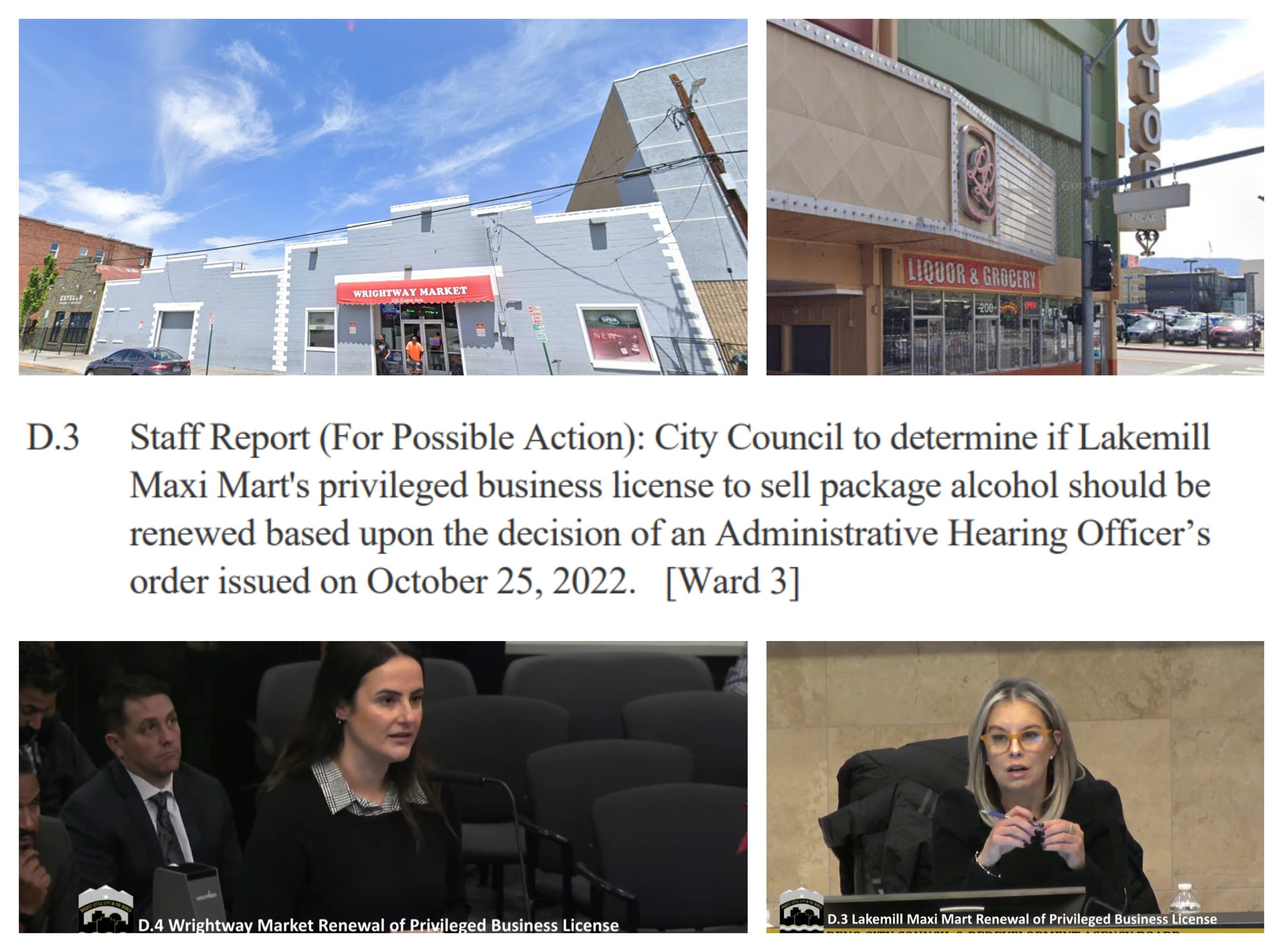Reno’s City Council voted Wednesday for two convenience stores serving mostly lower income populations in difficult areas to lose their business licenses allowing them to sell packaged alcohol.
Newly elected councilwoman Meghan Ebert joined Jenny Brekhus on the no side, while the two recently appointed council members Miguel Martinez and Kathleen Taylor joined other members Devon Reese, Naomi Duerr and Mayor Hillary Schieve on the yes side, meaning the licenses are being revoked.
Wrightway Market on Evans Avenue and Lakemill Maxi-Mart on Mill Street had already been barred from selling packaged alcohol since November after an administrative hearing officer determined their licenses should be suspended. The police and the city’s code enforcement presented a case of numerous violations, one recent murder near one of the stores, and a high volume of service calls.
Philosophies collided during the meeting as Schieve spoke of a “safe city being a prosperous city,” while Brekhus said a “prosperous city is a safe city,” calling for more economic investments which don’t lead to vacant lots. A lot of the new development in downtown areas has been unfulfilled, such as the Jacobs Entertainment project, or catering to a wealthy local and tourist clientele.
“What kind of a city do we want moving forward?” Schieve asked. She compared the convenience stores to motels “preying on people,” and vowed for a “new day downtown.”
Brekhus said these businesses close to bus stops with heavy pedestrian traffic were victims of “location.” She also said the evidence connecting their liquor sales to the identified problems were “flimsy” and that the data approach was not “correct.”
A representative for Wrightway Market Bianka Dodov called the revocation a “death warrant” due to tight profit margins, and alcohol sales allowing the store to survive. She said the immigrant-owned store was one of the few downtown allowing customers to pay with food stamps.
“Where will these people go if Wrightway is gone?” she said of the downtown area she called a food desert for lower income people.
A representative for Lakemill Maxi-Mart, Damon Booth, said his clients were being blamed for problems at the adjoining Lakemill Lodge. He said they had been leasing the convenience store from the motel for six years.
Ebert wanted more “thorough records of types of calls” which were being made. She said she made a request for that two weeks ago and hadn’t received anything from city officials.
Ebert repeatedly asked for solid metrics to base such decisions on. Reese, meanwhile, vowed that the city would go after what he called “bad actors,” a stance reiterated several times by Mayor Schieve.
Early indications for this newly constituted Council are that Ebert will join Brekhus in asking more pointed questions on how decisions are being made.
